 U.S. consumers were re-shapen by the 2008 Recession in two key ways: people took on more self-service DIY daily life-flows, seeking self-sufficiency and less dependence on institutions; and, consumers became more value-sensitive both in terms of financial value and personal values.
U.S. consumers were re-shapen by the 2008 Recession in two key ways: people took on more self-service DIY daily life-flows, seeking self-sufficiency and less dependence on institutions; and, consumers became more value-sensitive both in terms of financial value and personal values.
As Americans confront the clinical and fiscal realities of the coronavirus in the U.S., the trust people feel with organizations, brands and information sources is shifting, a special report from Edelman explains.
In Brand Trust and the Coronavirus Pandemic, Edelman focuses its trust lens on the pandemic and consumers’ shaken confidence in business and government institutions. These findings have special implications for health and health care.
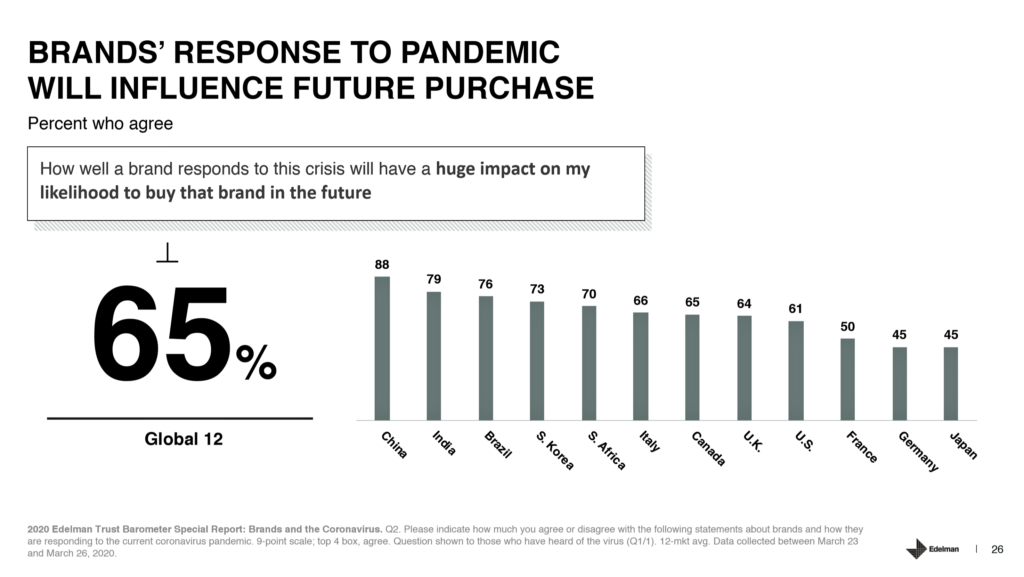 Edelman conducted survey research in twelve nations to gather insights on trust and global consumers; these were Brazil, Canada, China, France, Germany, India, Italy, Japan, South Africa, South Korea, the UK, and the U.S.
Edelman conducted survey research in twelve nations to gather insights on trust and global consumers; these were Brazil, Canada, China, France, Germany, India, Italy, Japan, South Africa, South Korea, the UK, and the U.S.
In the U.S., Edelman found that:
- 27% of consumers convinced other people to stop using a brand they felt was not acting appropriately in the pandemic
- 89% believe that brands must do everything they can to protect the well-being and financial security of their employees and suppliers — even if that means suffering large financial losses until the end of the pandemic — 44% as a “must do” to keep my trust
- 79% think brands should serve as an information source — 34% as a “must do” to keep my trust
- 83% of Americans say a company’s brand should be used to educate about the virus — 33% to keep their trust
- 66% say hearing from brands they use about their response to the coronavirus pandemic is comforting and reassuring, and 83% say issuing public statements showing empathy and support for people most affected by the pandemic bolsters consumer trust
- Finally, 61% of U.S. consumers said how well a brand responds to the COVID-19 pandemic will have a “huge impact” on the likelihood to buy that brand in the future–and at the same time, 69% of Americans believe brands that people believe put profits before people during the pandemic would lose their trust “forever.”
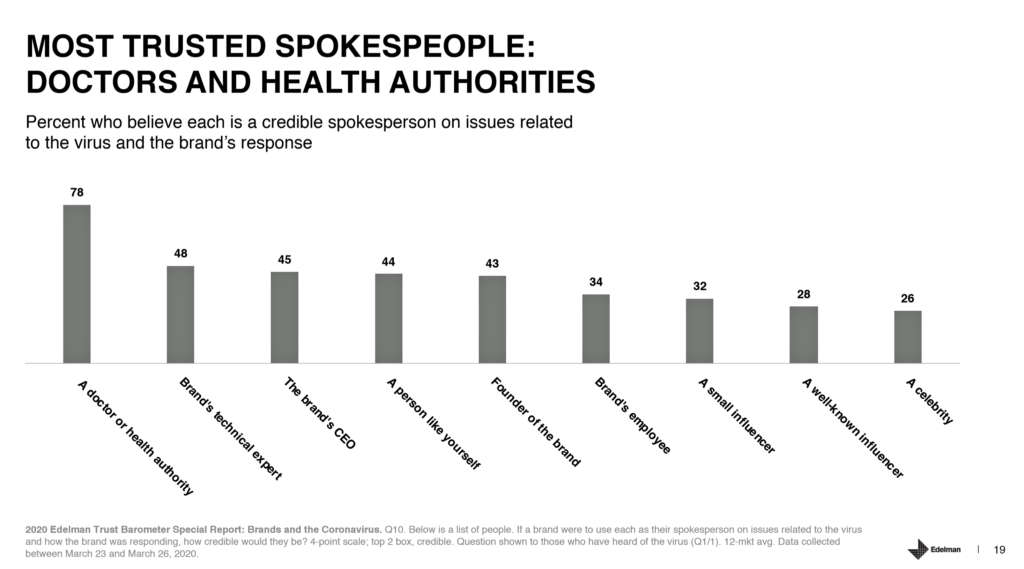 The most trusted spokespeople globally were found to be — far and away #1 — doctors and health authorities, among 4 in 5 consumers across the 12 nations polled. In second place were a brand’s technical expert (think: a pharma company’s research leader or Chief Medical Officer for a health plan or retail pharmacy company). Celebrities rank last in the most trusted spokespeople roster: only 1 in 4 consumers would trust a celebrity speaking on the pandemic.
The most trusted spokespeople globally were found to be — far and away #1 — doctors and health authorities, among 4 in 5 consumers across the 12 nations polled. In second place were a brand’s technical expert (think: a pharma company’s research leader or Chief Medical Officer for a health plan or retail pharmacy company). Celebrities rank last in the most trusted spokespeople roster: only 1 in 4 consumers would trust a celebrity speaking on the pandemic.
 Health Populi’s Hot Points: 4 in 5 U.S. consumers highly value brands that are issuing public statements expressing empathy and support for people most affected by the C19 pandemic. This last chart emphasizes consumers’ need in the pandemic era to have support in connecting people and helping us stay emotionally close, as well as facilitating a sense of community and offering solid social support.
Health Populi’s Hot Points: 4 in 5 U.S. consumers highly value brands that are issuing public statements expressing empathy and support for people most affected by the C19 pandemic. This last chart emphasizes consumers’ need in the pandemic era to have support in connecting people and helping us stay emotionally close, as well as facilitating a sense of community and offering solid social support.
Last week, I wrote about consumers’ health and household pressures during the pandemic, a tension between the “physical and the fiscal.” Financial wellness is baked into this pandemic in America as the nation’s safety net for both income and health care service security have eroded in recent years — driven by the growing gig economy, coupled with the erosion of Affordable Care Act marketplaces and assurances such as protections for pre-existing conditions and preventive services.
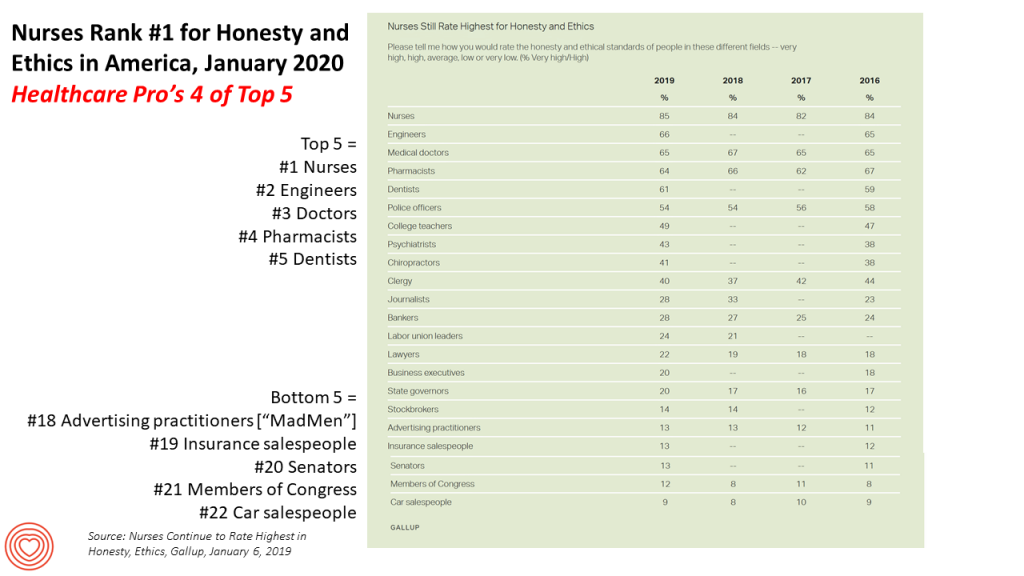 In Gallup’s most recent poll on the most honest and ethical professions in America, nurses, doctors, pharmacists and dentists ranked in the top 5, with nurses topping the list.
In Gallup’s most recent poll on the most honest and ethical professions in America, nurses, doctors, pharmacists and dentists ranked in the top 5, with nurses topping the list.
Tragically, these front-line workers continue to lack the personal protective equipment, inpatient medical technology (namely, ventilators for respiratory support), and testing to track and trace the sick and the well.
These are the most trusted sources for information — and they are the care providers in the pandemic.
This week, Dr. Eric Topol (of Scripps Translational Institute) wrote in Medscape (where he is Editor-in-Chief):
The US Betrays Healthcare Workers in Coronavirus Disaster…It’s bad enough that the United States was totally unprepared for a pandemic and has such an unimaginable shortage of requisite resources. But the situation still gets worse. On a widespread basis, doctors and nurses are being gagged and muzzled by administrators for expressing their concerns, and penalized or even fired when they do speak out…The handling of the COVID-19 pandemic in the United States will go down as the worst public health disaster in the history of the country. The loss of lives will make 9/11 and so many other catastrophes appear much smaller in their scale of devastation. Perhaps what we in the medical community will remember most is how our country betrayed us at the moment when our efforts were needed most.”
The medical community, our most-trusted human capital in the U.S., will remember — and be scarred — by the Federal government’s poor response to and advance planning for the coronavirus pandemic.
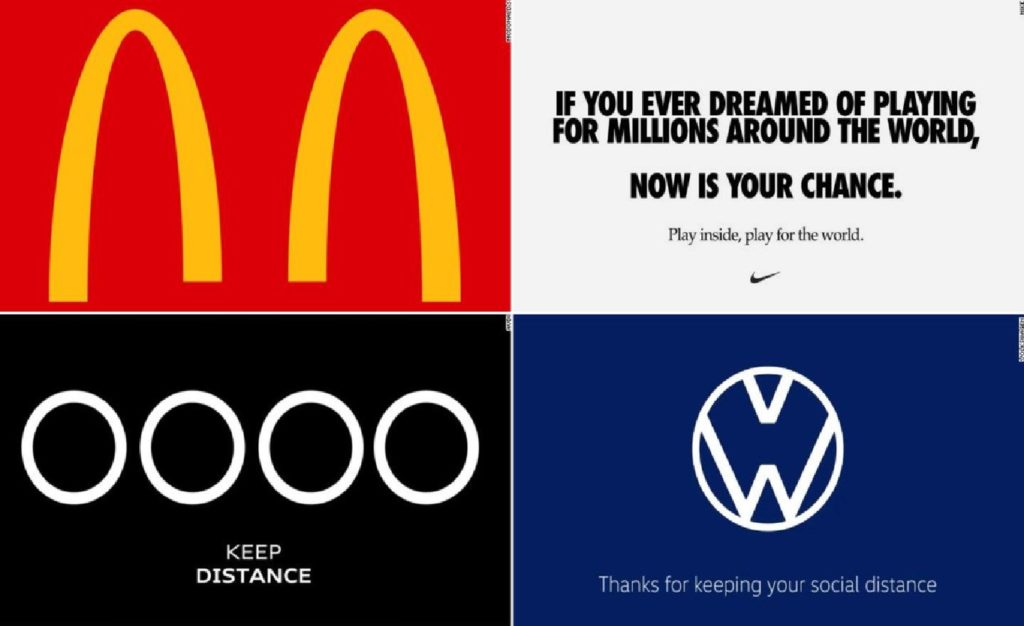 So, too, will the growing number of American families whose trust in both government and the health care system be further shaken. Edelman’s Trust Barometer has noted a precipitous decline in Americans’ trust in government and media over the past several years. In the past one year, U.S. health consumers’ trust in hospitals fell (partly due to surprise medical bills and patients-as-payors’ financial stress).
So, too, will the growing number of American families whose trust in both government and the health care system be further shaken. Edelman’s Trust Barometer has noted a precipitous decline in Americans’ trust in government and media over the past several years. In the past one year, U.S. health consumers’ trust in hospitals fell (partly due to surprise medical bills and patients-as-payors’ financial stress).
As I work on scenario planning for my forecast work on the impact of COVID-19 on the future of health care in the U.S., it’s more clear than ever that Americans need to claim their health citizenship — which addresses both universal health care access and a well-funded and -designed public health infrastructure.
I leave you with a hopeful corporate messages from Nike, McDonalds, Audi and VW…Nike’s being instrumental in our staying physically active for health in both body and mind, and the three logos reminding us to keep physically distant & #StayHome to #FlattenTheCurve.


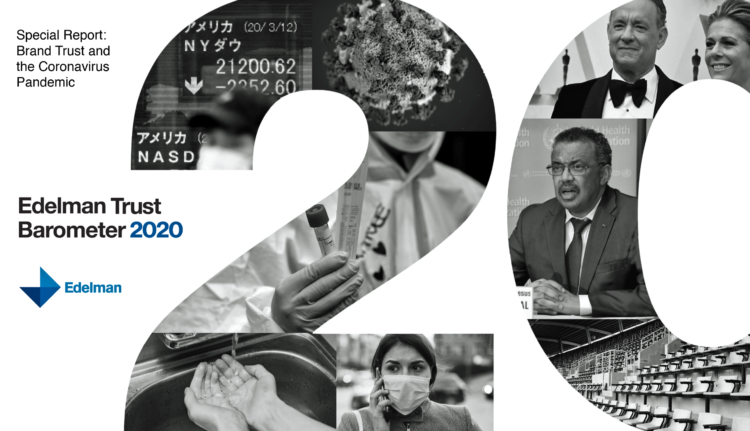


 I was invited to be a Judge for the upcoming
I was invited to be a Judge for the upcoming 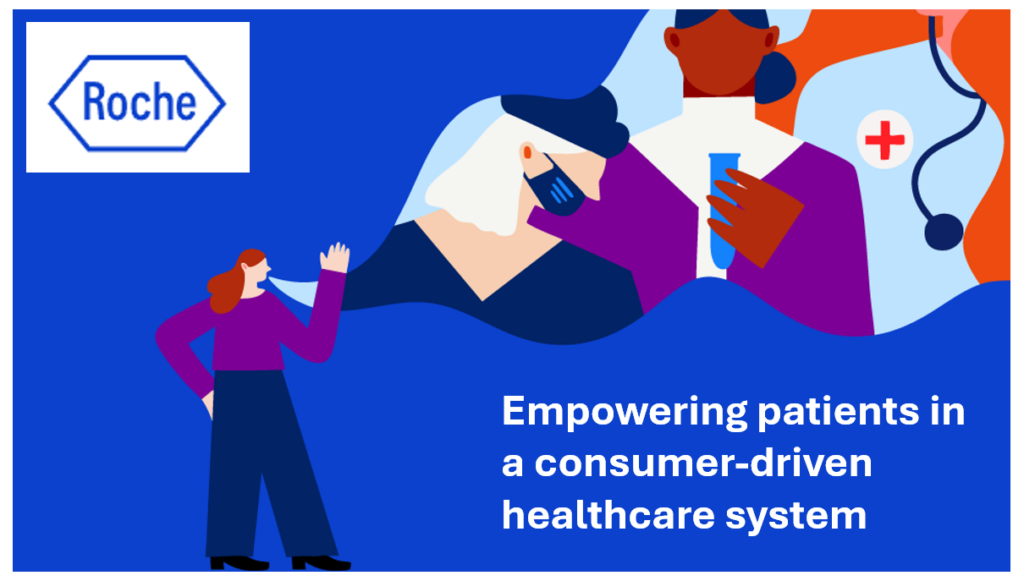 Thank you Team Roche for inviting me to brainstorm patients as health citizens, consumers, payers, and voters
Thank you Team Roche for inviting me to brainstorm patients as health citizens, consumers, payers, and voters  For the past 15 years,
For the past 15 years,